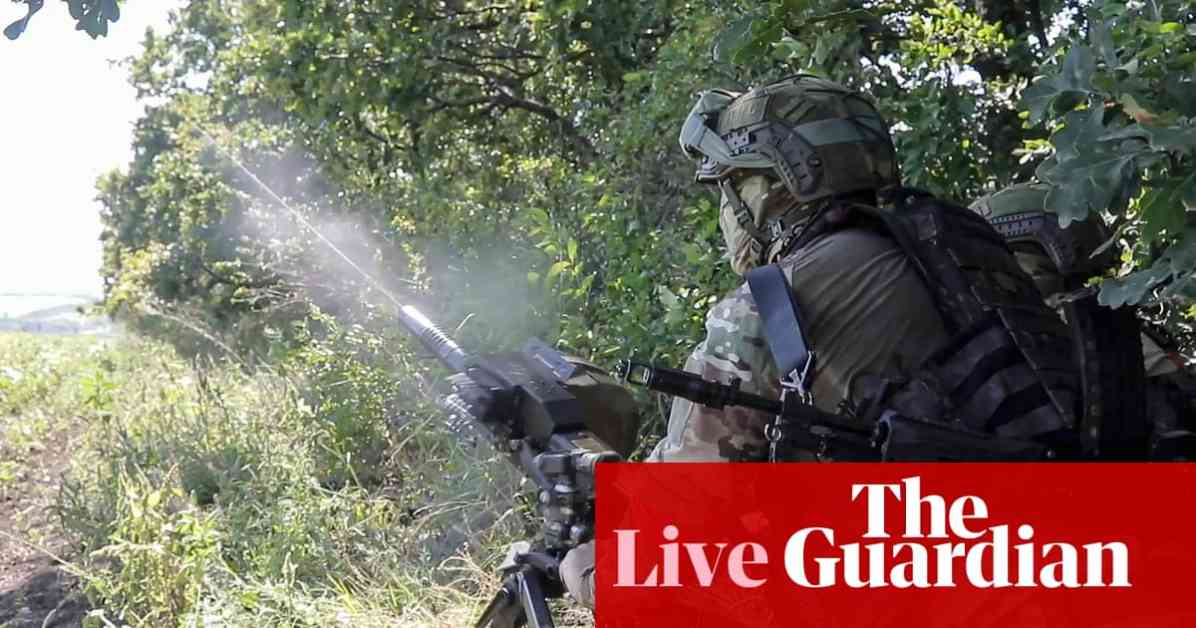Russian air defenses successfully intercepted and shot down 11 Ukrainian drones that were targeting Moscow in one of the largest such attacks ever against the capital, officials confirmed on Wednesday. The defense ministry stated that all 11 drones were destroyed over Moscow and its surrounding region, with Moscow mayor Sergei Sobyanin describing it as one of the largest attempts to attack the city with drones. Fortunately, there were no reported casualties or damage following the interception.
Drone attacks on Moscow are a rare occurrence, with the last reported drone incident outside the capital in May resulting in temporary restrictions at major airports. The ongoing conflict between Russia and Ukraine has seen Kyiv targeting oil and gas facilities in Russia as a form of retaliation for attacks on its own energy infrastructure. Most recently, Ukrainian drones attacked an oil storage facility in Russia’s Rostov region, causing a significant fire that required the efforts of around 500 Russian firefighters to extinguish.
In another development, Ukraine reported that a significant number of Russian servicemen, estimated to be in the hundreds, surrendered during the Kursk offensive that commenced on August 6th. A visit by Agence France-Presse to a detention center in Ukraine’s Sumy region revealed the perspective of a 22-year-old Russian prisoner of war who expressed hope of being exchanged and returning to his family. The deputy head of the detention facility noted that the prisoners were initially fearful but became more at ease upon realizing they were being treated well.
Ukraine’s military chief, Oleksandr Syrskyi, disclosed that Ukrainian forces had penetrated 28-35km into Russia’s Kursk region, prompting Moscow to redeploy troops from other areas to bolster defenses in the region. Additionally, Russia announced the formation of three new military groupings to enhance security along its borders with Ukraine. Amidst the conflict, Russian intelligence sources alleged the involvement of US, British, and Polish intelligence in orchestrating the Ukrainian incursion into Kursk, a claim refuted by Ukrainian President Volodymyr Zelenskiy who emphasized the operation’s secrecy.
Furthermore, Russia reportedly launched a missile and drone attack on energy infrastructure in northern Ukraine, resulting in a massive fire that released chlorine into the air. Ukrainian forces successfully intercepted three ballistic missiles and 25 drones in the attack, marking the fifth missile strike on Kyiv this month. The ongoing hostilities have raised concerns of escalating tensions and the potential for a wider conflict involving international nuclear powers.
In a surprising turn of events, Hungary extended its “national card” immigration program to include Russians and Belarusians, triggering concerns within the European Union about potential security risks and espionage activities. The Hungarian government assured that the same security screening protocols applied to other residence permits would be implemented for participants in the program, amid fears of Russian infiltration into the Schengen zone. The move underscored Hungary’s complex relationship with Russia, despite broader tensions between the EU and Moscow over the conflict in Ukraine.
On the international front, the United States approved a nuclear strategy aimed at preparing for potential nuclear confrontations with Russia, China, and North Korea. The decision was not in response to a specific threat but acknowledged the evolving nuclear capabilities of China and threats from Russian President Vladimir Putin, who has hinted at using nuclear weapons in Ukraine. The policy shift reflects growing concerns about the global security landscape and the need to deter potential adversaries from escalating nuclear conflicts.
Amidst the ongoing conflict, Hungary’s foreign minister reassured the public that the country’s energy supply remained secure despite the fighting in Russia’s Kursk region. Additional pipelines were utilized to maintain gas supplies, mitigating any potential disruptions caused by the conflict. The assurance aimed to allay fears of energy shortages and underscored Hungary’s efforts to safeguard its energy infrastructure amidst regional instability.
In a separate development, Russia experienced mass disruptions in popular messaging apps Telegram and WhatsApp, prompting concerns about potential cyber interference. The state telecommunications monitoring service reported the disruptions without specifying the cause, raising questions about possible cyber attacks or technical issues impacting communication channels. The incident highlighted the vulnerability of digital platforms in the midst of geopolitical tensions and underscored the importance of cybersecurity measures to safeguard critical communication networks.
The Ukrainian parliament’s decision to ratify the Rome Statute and join the International Criminal Court marked a significant step towards accountability for grave offenses committed during the conflict. The move aimed to address concerns about potential war crimes and human rights violations, aligning Ukraine with international standards of justice and accountability. The ratification included provisions to exempt Ukrainian citizens from prosecution for war crimes for a specified period, reflecting the delicate balance between pursuing justice and protecting national interests amidst ongoing hostilities.
The dispute between Ukraine and several West African countries over alleged support for rebel groups in the Sahel region underscored the interconnected nature of global conflicts. Mali, Niger, and Burkina Faso’s denunciation of Ukraine’s involvement in regional conflicts highlighted the complexities of international relations and the ripple effects of geopolitical interventions. The diplomatic fallout reflected the broader implications of proxy conflicts and the challenges of navigating alliances in a multipolar world.
Overall, the evolving dynamics of the Russia-Ukraine war and its global ramifications underscored the interconnectedness of modern conflicts and the imperative of diplomatic solutions to prevent further escalation. The ongoing hostilities highlighted the fragility of international security and the need for coordinated efforts to address root causes of conflict and promote lasting peace in the region.












